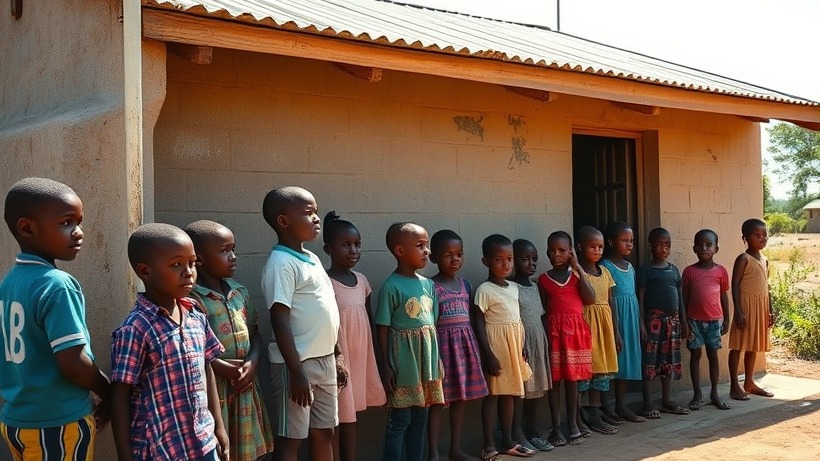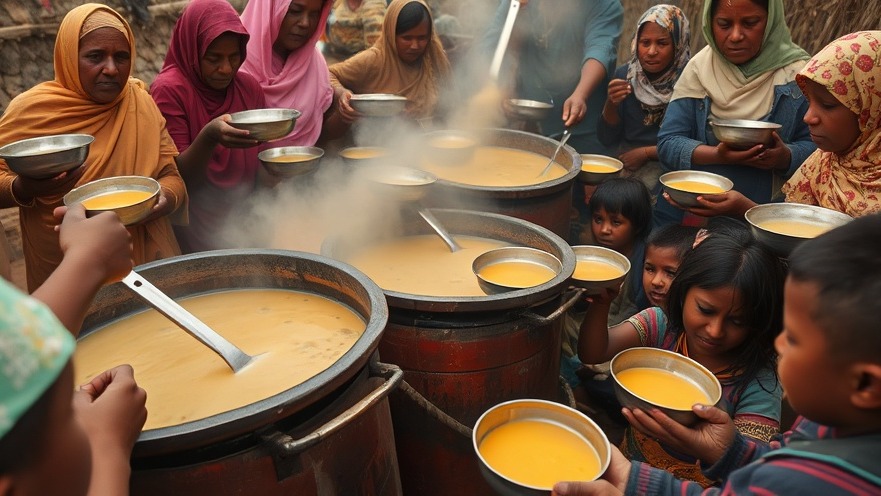
Impact of the Trump Administration’s Foreign Aid Review on Global Health
The Trump administration's reevaluation of foreign aid has resulted in significant consequences for U.S. global health programs, particularly those affiliated with the Coalition for Epidemic Preparedness Innovations (CEPI). Starting with an executive review that halted funding and operations, this policy shift has left many health initiatives in limbo. The freeze of ongoing programs disrupts efforts critical to combating global health threats, and CEPI's mission of rapid vaccine development during pandemics is particularly impacted.
Understanding CEPI’s Essential Role in Global Health
Founded in response to growing epidemic threats, CEPI plays a key role in global health infrastructure. It pools resources from governments, foundations, and private sectors to develop vaccines and therapeutic solutions against high-threat pathogens. Through initiatives like the “100 Days Mission,” CEPI aims to drastically reduce the time required to create vaccines during health crises.
Since its inception, CEPI has made remarkable strides, evidenced by its support of several clinical trials amid ongoing health emergencies. The organization’s collaborative projects extend to various government sectors, highlighting its importance in U.S. health strategy and the wide-ranging benefits such partnerships can have on disease prevention and overall public health.
Recent U.S. Contributions and Agreements
The financial backing provided by the U.S. to CEPI since 2020, amounting to $217 million, underscores the nation's commitment to bolstering vaccine development and enhancing global health security. Recent Memorandums of Understanding (MOUs) with the U.S. International Development Finance Corporation and the Department of Defense signify a proactive approach towards pandemic preparedness. These collaborations not only aim to streamline vaccine investments but also enhance research efforts against high-risk pathogens, including Nipah virus and filoviruses.
Challenges and Controversies
Despite the apparent intentions of these initiatives, the foreign aid review has encountered significant roadblocks. Legal challenges have emerged around the administration's frozen aid policies that many believe undermine essential humanitarian assistance. Moreover, complications via bureaucratic hurdles have restricted aid organizations from effectively accessing necessary funds, drastically affecting operational capacities worldwide.
CEPI’s reliance on U.S. government support amplifies these issues, as the truncated funding could halt critical vaccine research and development, especially amid a global pandemic landscape. Stakeholders demand clarity and commitment from the administration to ensure that humanitarian efforts continue unimpeded.
The Future of U.S. Global Health Support
As we move forward, it is vital for the U.S. government to reassess its approach to foreign aid and public health. The repercussions of the ongoing review can have dire implications for epidemic preparedness not only in the U.S. but globally. The need for consistent funding and strategic collaboration with organizations like CEPI cannot be overstated; ensuring health security is a collective responsibility. President Trump’s second term could either reaffirm or escalate these shifts in foreign policy, with potential consequences for future health outcomes on a global scale.
Call to Action for Health Advocates
As our global health landscape continues to evolve, it is imperative that health advocates and professionals stay informed and engaged. Understanding the implications of current policies can pave the way for productive dialogue and advocacy efforts aimed at ensuring that effective health policies are prioritized. Join the conversation surrounding international health initiatives and support CEPI and similar organizations working tirelessly to protect public health on a global scale.
 Add Row
Add Row  Add
Add 




Write A Comment